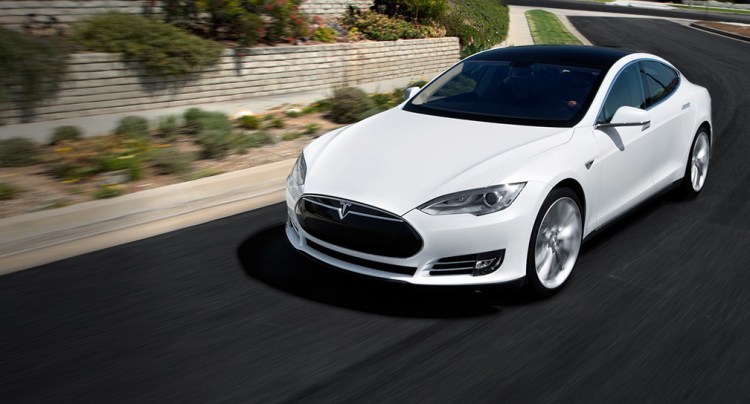When he isn’t talking about commercial space travel, Elon Musk is totally that guy. You know, the one that’s always stopping the public discourse to ask, “Excuse me, do you have a second to talk about electric vehicle technology?”
But rather than begging for Greenpeace donations on the sidewalk, clipboard in hand, he’s petitioning the world’s largest automakers to build electric vehicles using Tesla Motors’ patented technologies.
“Tesla will not initiate patent lawsuits against anyone who, in good faith, wants to use our technology,” Musk, Tesla’s chief executive, wrote in a statement Thursday.
READ MORE: 5 reasons Tesla wants you to use its proprietary tech
Here’s what that bold declaration means — and why it’s such a smart move for Tesla.
An invitation
Although Musk cited the open source movement as inspiration for his patent pledge, Tesla’s patents are not available under some automative equivalent of an Apache license. From a legal perspective, nothing has changed. It doesn’t matter how nonchalant Musk acts — Toyota, Ford, Honda, and the rest would never knowingly infringe on Tesla’s patents without legal documentation that everything is cool.
“We’re more than happy to do some sort of simple agreement with other car manufacturers if they’re concerned about that,” said Musk in a press call following yesterday’s announcement.

Above: Elon Musk watches robots at the Tesla Motors plant (formerly NUMMI plant).
The patent pledge is an invitation for automakers to approach Tesla for licensing deals with very favorable, long-lasting terms. Those contracts would almost surely include a sword and shield provision — something to the effect of, “We won’t sue you if you don’t sue us.”
If a company using Tesla patents violates and sues Tesla for infringing on one of its own patents, Tesla reserves the right to countersue. Tesla would also take issue with automakers if their “new, original” designs looked exactly like Tesla cars.
Legally, Tesla could still charge for access to its patented technologies. But it almost certainly won’t. The benefits of fostering a standard platform for electric car tech far outweigh short term revenue gains from paid licensing agreements.
And that mindset demonstrates that, at its core, Tesla is a tech company, not a car company.
Silicon DNA
Tesla has several hundred patents. It won’t hold any of them back, not even its high-speed battery-charging tech, promised Musk.
“That is a very Silicon Valley attitude towards competition and intellectual property. No Detroit automaker would ever do something like this,” Mark Lemley, a law professor at Stanford University, told VentureBeat.
“Tesla recognizes that it is trying to build a network, and if it can get more people to invest in electric car technology, it will benefit even as others benefit too.”

Above: Tesla’s Model S is rated for a top speed of 130 mph.
There’s very little precedent for this in the auto industry, but it’s more common in the tech industry. In 2012, Twitter announced it would only use its patents for defensive purposes. Sun Microsystems promised the same thing many years prior. Netscape made its patents for the SSL cryptographic protocol broadly available under a specific license.
Those moves weren’t purely altruistic, and neither is Tesla’s.
“In one sense, Tesla is clearly giving something up: the ability to keep competitors from using their proprietary tech,” Christian Hicks, president of litigation consulting firm Elysium Digital, told VentureBeat.
“But the analysis that Tesla has made here is it will benefit more from a faster-growing electric car industry than it will from hoarding a lion’s share of a small pie.”
Lack of infrastructure for electric vehicles has been holding market back, as most consumers want a vehicle they can drive across the country with minimal detours and delays. If Toyota or Honda started dotting the countryside with Tesla-compatible supercharger stations, and using the same battery technology in their cars, that would mean greater market demand for Tesla tech and lower production costs.
Tesla “wants to encourage others to develop on a common platform, and to the extent that they’re doing so, Tesla is not going to stop that by using its patents offensively,” said Michael Schallop, a partner at IP law firm Van Pelt, Yi & James.
But now, Musk is going one massive step further by shifting the company’s strategy for competition to one that relies on “good faith.” And good faith is exactly what Tesla Motors needs now that Musk has opened up its valuable library of patents, and pledged not to sue those that infringe on its IP.


